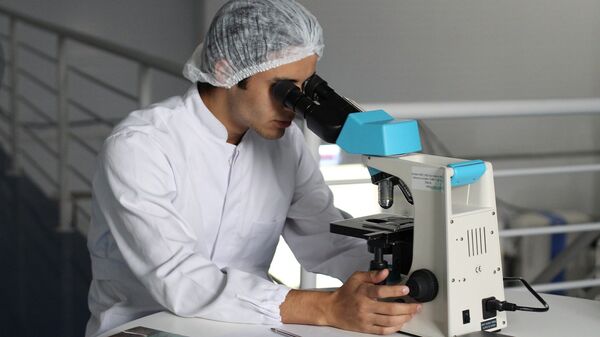The human body has enzymes like catalase and peroxide which can convert hydrogen peroxide into non-harmful entities. But an imbalance in metabolic processes in diseases such as neurodegenerative disorders, cancer, inflammation, diabetes and cardiovascular disease can lead to an over-production of hydrogen peroxide in the body.
Scientists at the Indian Institute of Technology in Guwahati have fabricated a nano-chip from laboratory waste that can sense hydrogen peroxide and can help in diagnosing progression in several such diseases.
Although enzyme-peroxidase based methods exist to detect hydrogen peroxide, they are cumbersome and costly due to the use of sophisticated instruments, the need for trained personnel, multistep protocols, and the short shelf life of enzymes. The nano-chip fabricated by the team of scientists is enzyme-free and can be used for hydrogen peroxide detection.
Researchers used peroxidase activity of gold to detect hydrogen peroxide, and plated gold on indium tin oxide plate which is used to perform scanning electron microscopy in laboratories which is then discarded after one use.
Following on from this, a process known as sputtering, in which fast ions of metal are bombarded onto a metal surface to make waves - was performed on a gold plated chip which creates more surface area for hydrogen peroxide detection. The chip was tested using electron microscopy and its effectiveness in detecting hydrogen peroxide in human blood samples was assessed.
“The sensor development process is time saving requiring just 30 minutes for the sensor chip fabrication from raw materials, which can be reused for several times without losing the efficiency,” Dr. Pranjal Chandra, leader of the research team told India Science Wire.
The nano-chip can detect extremely low levels of hydrogen peroxide and takes less than a second for detection. The presence of other substances in blood such as glucose, citric acid, ascorbic acid, uric acid etc. does not hinder the detection of hydrogen peroxide. The chip stays stable for use for up to 12 weeks.
“Future work can be directed towards the development of a handheld device integrated with an interface like a mobile phone based on the sensing principle and the prototype demonstrated in our work. The system can also be tested for hydrogen-peroxide detection in various other clinically important samples such as serum, urine, tear, and in related industries,” added Dr. Chandra.



